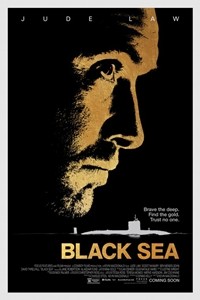 Black Sea
Black Sea
Dir: Kevin Macdonald
Starring: Jude Law, Scoot McNairy, Ben Mendelsohn, David Threlfall, Tobias Menzies, Michael Smiley, Karl Davies, Daniel Ryan, Konstantin Khabenskiy, Bobby Schofield, and Grigoriy Dobrygin
By Monte Yazzie
Many films have found success by putting a group of people in a confining space and letting human nature take its strange course. Place variables like an alien trying to get into a barricaded room, the decision lingering for a jury of clashing personalities, or the quest for gold at the bottom of the ocean inside the belly of a claustrophobic submarine and you have the makings of good storytelling. That finishing submarine scenario is the subject of Kevin Macdonald’s underwater thriller “Black Sea”, a film that succeeds in building suspense and remaining exciting even though it becomes a familiar and predictable story.
A recently laid off submarine captain named Robinson (Jude Law) comes across valuable information concerning a German U-boat that was lost in the depths of the Black Sea and contains a life-changing amount of gold Russia paid Germany during World War II. Robinson is angry with the company that he loyally served, a job that kept him away from his family and created a rift in his marriage that ultimately led to a divorce. Robinson dreams of better times with his family but only awakens to unhappiness; this leads him to an American financer who endorses the voyage to the depths in a corroding submarine with a group of men equally as discontent.
Greed and desperation are two themes that Macdonald utilizes effectively. At the core of this story is simply a group of men trapped in a submarine, a vessel filled with hopefulness that quickly turns into a container of deteriorating life support. Robinson lets the men know from the beginning that the treasures will be split equally, it doesn’t take long for the men to realize that less people means more money and greed takes over. This leads to disaster for the submarine then desperation for the men and their lives, but also their fortune that is within grasp. On board the submarine is a diverse crew of Russian and British men, a device cleverly used by Macdonald to instantly draw the lines of allegiances between the groups. Add into the mix the role of an American broker named Daniels (Scoot McNairy) and a young homeless teenager named Tobin (Bobby Schofield) and the narrative becomes prime with character motivations. Unfortunately these characters all fall into easily identified categories that make decisions that become overly predictable. While this isn’t always a bad thing, especially in a film like this, it does make the holes in the narrative seem even larger. The decision to limit the transitions between underwater scenes that display a moving submarine and the interior confinements of a submarine creates great claustrophobic atmosphere, though in parts it also restricts the space inside the submarine making the movements throughout seem somewhat confusing.
Jude Law is excellent here, changing Captain Robinson emotionally throughout the journey. He begins as the levelheaded leader and moves into an obsessed tyrant with ease. The remaining cast is also good even though they are unsurprising and familiar characters, however the performances keep together the loose ends that periodically snag the viewer out of the film.
“Black Sea” is one of those films that pleasingly occupies time for an impromptu movie decision. While there is nothing terribly wrong with this film, there is also not much that is especially memorable either. Amongst the weekly barrage of new releases at the movie theater, it’s still nice to have something that is purely and simply entertaining.
Monte’s Rating
3.25 out of 5.00

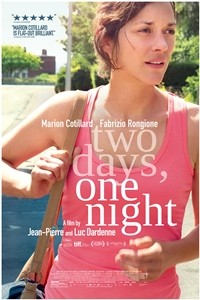 Two Days, One Night
Two Days, One Night
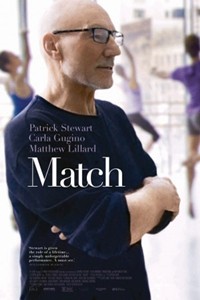 Match
Match
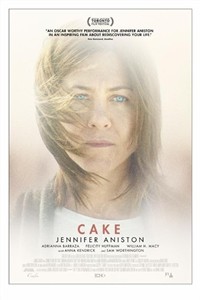 Cake
Cake
 Winter Sleep
Winter Sleep
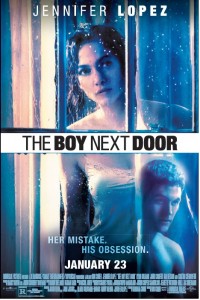 The Boy Next Door
The Boy Next Door
 King of Herrings
Dir: Eddie Jemison and Sean Richardson
King of Herrings
Dir: Eddie Jemison and Sean Richardson interesting quality of identifiable people. The leader with a Napoleon complex, the supportive to a fault friend, the peacemaker who keeps everyone calm, the friend who is waiting to take over, the lonely woman on the verge of self-discovery; these characters are all well rendered here. It’s a compliment to the narrative structure, which moves somewhat aimlessly, that these difficult characters remain believable amidst all the underhandedness that transpires. Though it’s easier to accomplish this when you have such a talented cast. Eddie Jemison is in the spotlight and accomplishes the task of becoming a loathsome character in the first few minutes of screen time. This continues throughout as Ditch vehemently muses on aspects of love, sex, marriage, and friendship. It’s comic yet wholly serious, a thin line that displays Jemison’s skill. Joe Chrest does a great job as The Professor, moving from an insufferable smart aleck, to a revenge-seeking degenerate, to a confused suitor; you never know what aspect of the character is genuine if any at all. The best character in the mix comes along unexpectedly in the form of Laura Lamson who plays Ditch’s wife Mary. Her character is mistreated and degraded by Ditch throughout, relinquished to an almost captive state as a lonely woman desperate for escape and the self-esteem to stand up to her husband. Lamson starts off subdued but slowly emerges as the strongest character amidst a group of men whose misguided masculinity in a way becomes their vulnerable limitation.
interesting quality of identifiable people. The leader with a Napoleon complex, the supportive to a fault friend, the peacemaker who keeps everyone calm, the friend who is waiting to take over, the lonely woman on the verge of self-discovery; these characters are all well rendered here. It’s a compliment to the narrative structure, which moves somewhat aimlessly, that these difficult characters remain believable amidst all the underhandedness that transpires. Though it’s easier to accomplish this when you have such a talented cast. Eddie Jemison is in the spotlight and accomplishes the task of becoming a loathsome character in the first few minutes of screen time. This continues throughout as Ditch vehemently muses on aspects of love, sex, marriage, and friendship. It’s comic yet wholly serious, a thin line that displays Jemison’s skill. Joe Chrest does a great job as The Professor, moving from an insufferable smart aleck, to a revenge-seeking degenerate, to a confused suitor; you never know what aspect of the character is genuine if any at all. The best character in the mix comes along unexpectedly in the form of Laura Lamson who plays Ditch’s wife Mary. Her character is mistreated and degraded by Ditch throughout, relinquished to an almost captive state as a lonely woman desperate for escape and the self-esteem to stand up to her husband. Lamson starts off subdued but slowly emerges as the strongest character amidst a group of men whose misguided masculinity in a way becomes their vulnerable limitation. actress Laura Lamson, the actor-director’s real-life wife. Lamson plays Mary, much-better half to Jemison’s Ditch, the wildly offensive leader to his circle of misfits and miscreants. When Ditch pushes his caustic sense of humor a little too far within the group, The Professor (played by Joe Chrest) plans a retaliatory strike by befriending Mary, Ditch’s lonely seamstress wife.
actress Laura Lamson, the actor-director’s real-life wife. Lamson plays Mary, much-better half to Jemison’s Ditch, the wildly offensive leader to his circle of misfits and miscreants. When Ditch pushes his caustic sense of humor a little too far within the group, The Professor (played by Joe Chrest) plans a retaliatory strike by befriending Mary, Ditch’s lonely seamstress wife. Winner of the Breakthrough Filmmakers Award at the 2014 Phoenix Film Festival, King of Herrings releases this
Winner of the Breakthrough Filmmakers Award at the 2014 Phoenix Film Festival, King of Herrings releases this  and Augie (John Mese). They're a ragtag group of friends that always seem to fight over trivial matters in New Orleans. The catalyst for the story involves a debt of nine dollars that's completely asinine in the grand scheme of things, but to these men means everything. It's a semblance of respect and honor that they cannot seem to fulfill that haunts their decisions and leads to increasingly disrespectful actions: adultery, threatening, violence, and anything else that could possibly destroy friendships. The characters aren't relatable in their actions but in their emotions; I cared for the characters when I could see compassion shining through their tomfoolery. Characters need heart and Jemison's film allows them that, even if there are slight bouts of misogyny that pervade the men's decision-making. King of Herrings meanders in the middle as the characters' actions begin to feel a bit strained, but the conclusion is worthwhile and a reminder that comedies must have notes of tragedy or else, well, what are we laughing at?
and Augie (John Mese). They're a ragtag group of friends that always seem to fight over trivial matters in New Orleans. The catalyst for the story involves a debt of nine dollars that's completely asinine in the grand scheme of things, but to these men means everything. It's a semblance of respect and honor that they cannot seem to fulfill that haunts their decisions and leads to increasingly disrespectful actions: adultery, threatening, violence, and anything else that could possibly destroy friendships. The characters aren't relatable in their actions but in their emotions; I cared for the characters when I could see compassion shining through their tomfoolery. Characters need heart and Jemison's film allows them that, even if there are slight bouts of misogyny that pervade the men's decision-making. King of Herrings meanders in the middle as the characters' actions begin to feel a bit strained, but the conclusion is worthwhile and a reminder that comedies must have notes of tragedy or else, well, what are we laughing at? A Most Violent Year
A Most Violent Year
 American Sniper
American Sniper
 Blackhat
Blackhat

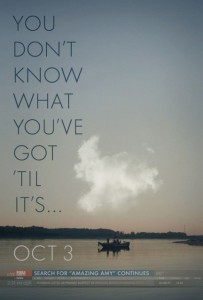
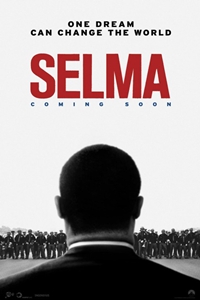 Selma
Selma
 Inherent Vice
Inherent Vice







